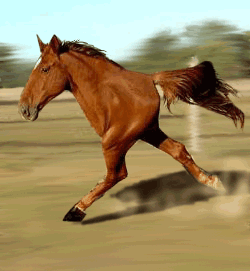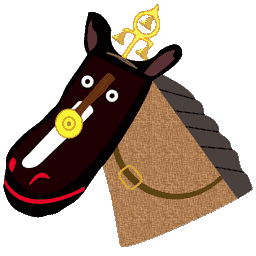
Introduction to Hoodening
Hoodening as it is now
Hoodening is an East Kent winter custom dating back many centuries. In its current form (for the last fifty-odd years), a small band of villagers — the Hoodeners — spend around four days before Christmas touring local pubs and private parties with their Hooden Horse, performing a humorous play along the theme of death and resurrection, drinking a lot of beer, and collecting money for charity. A new play is written each year in rhyming couplets by one of the troupe, and references to recent events (local, national and international) are frequently included, although the setting is based on a ploughing team from the 19th century.
The definitive guides
Although this website does contain a lot of information on hoodening, including a detailed definition, description of similar customs, historical images and so on, more can be found in George Frampton's 2018 book "Discordant Comicals: The Hooden Horse of East Kent", and James Frost's 2023 book "Animal Guising and the Kentish Hooden Horse", both full colour hardbacks published by Thanet imprint Ozaru Books. They build on Percy Maylam's famous 1909 work, which is also available in a modern annotated edition.
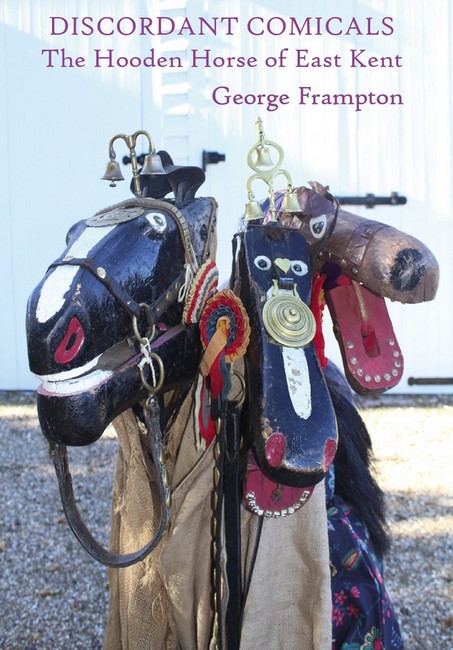
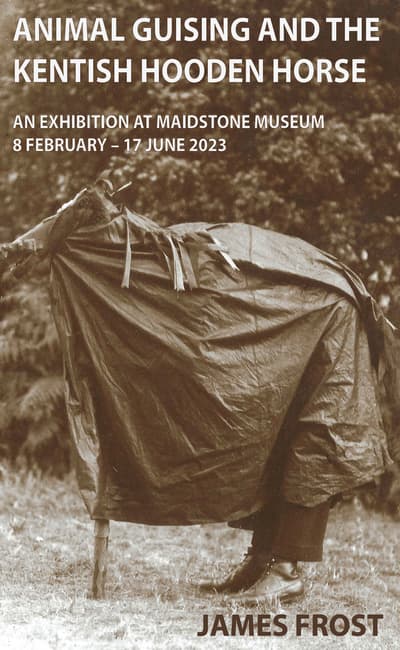
Repose and reawakening of St Nicholas Hoodening
There used to be groups all around East Kent, but at the beginning of the 20th Century only a few were left, including one based at Nether Hale and another in Sarre (both near St Nicholas-at-Wade). There were various differences from Hoodening as it is now — for example, they did not announce when they would visit a house (but people knew it was likely to happen sometime in the week before Christmas), they collected money for themselves rather than for charity, and instead of performing a play with a script they did horseplay (they fooled around, and the Jockey tried to ride the Horse, but was normally thrown off; sometimes the 'audience' tried too, with similar results), and sang popular songs of the period. The team took a breather in around 1921 and stabled their horse in an attic, until it reappeared in 1966 and the custom restarted. Six original Hooden Horses have survived, of which only the two in St Nicholas are alive — the others are mainly slumbering in museums.
Standard characters
(N.B. Many of the names are unique to St Nicholas, and some have simply been created recently. Other characters such as the Boss's Son/Daughter have made occasional appearances, too.)
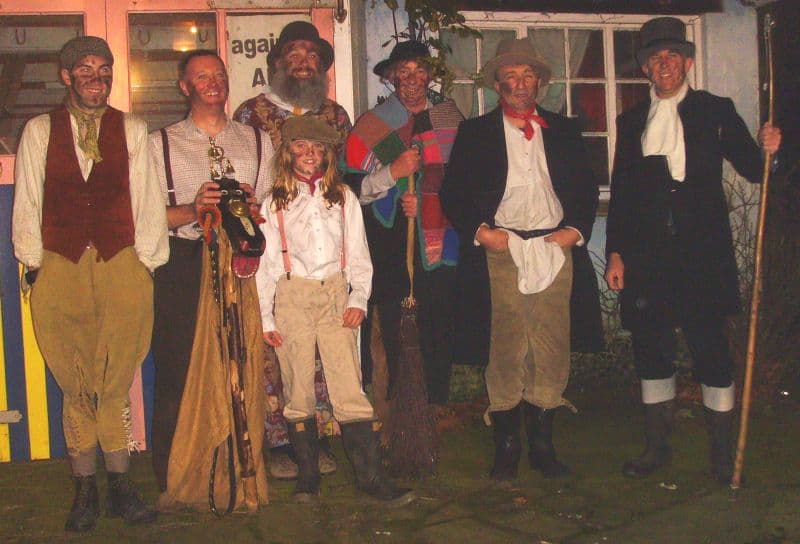
- The Hooden Horse
- Dobbin. Tends to be seen as a 'poor old horse' exhausted by the hard labour forced on him by the Boss. In recent years occasionally accompanied by up to two other horses (with varying names).
- Wagoner
- Was Joe and 'arry, now Bill. Wears a top hat, carries a whip and keeps the others in line.
- Mollie
- A woman (played by a man) past her prime. Carries a broom (and used to use it to sweep the feet of those just inside the door). A soft heart (and head).
- Ted
- Farm labourer. Lazy, mean and smelly. Has gone by other names too, e.g. Allan, Sam.
- Boy
- Sometimes tries to ride the horse — with varying degrees of success (depending on the age of the horse)! Young and reckless.
- Musician
- George (and previously Adam). Quite stupid, but helps everyone sing the carols at the end. It looks as though he wears pyjamas made from curtains, but this is an authentic costume copied from an old photograph!
Meaning of 'Hooden'
There is no clear etymology for the words 'hooden' or 'hoodening'. The Oxford English Dictionary entry is quite brief and surmises that it derives from 'wooden', but other theories include 'hooded', 'hide' (as in animal skin — or as in concealment) and 'hodden' (a coarse, peasant/farmer cloth, albeit mainly associated with Scotland): all of which should be self-explanatory. There is a local village called Hoaden, but it has no obvious link with the tradition; conversely, the village of Hoath does, so folk etymologists will probably one day conclude that it was the 'Hoathen' horse, but that is quite fanciful and there's no evidence. One book claims it may be from 'hodden', a dialect form of 'holden', meaning 'held' as in a sacred object to be guarded for a symbolic annual sacrifice… hmmm! Another suggested derivation is 'Robin Hood', as he was a key figure in Mumming plays throughout history, accompanied by Maid Marian = Mollie. Finally, there is a chance that it may have come from 'Woden' (the Norse god), as he had a famous horse and this has evidently influenced the similar custom of the Schimmelreiter. It is unlikely we will ever know much more than this.
